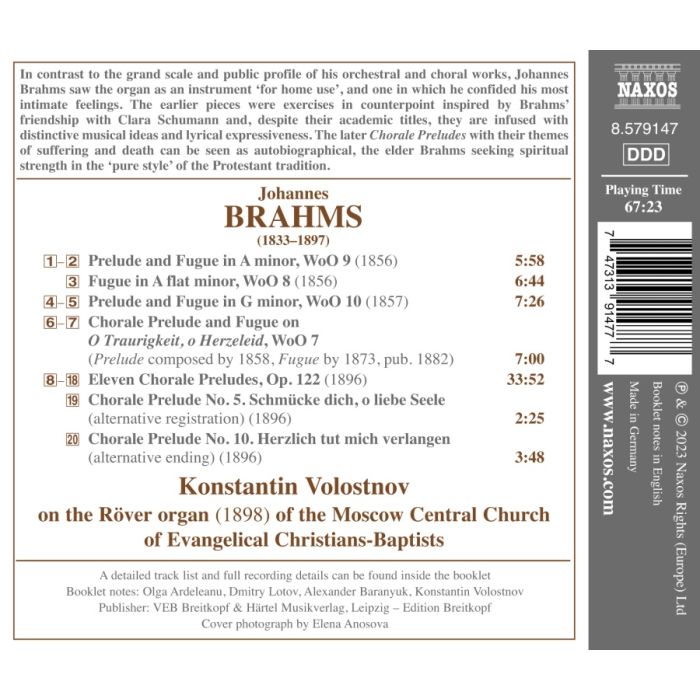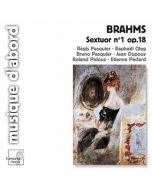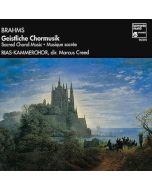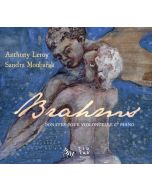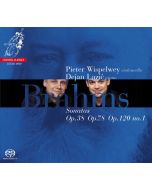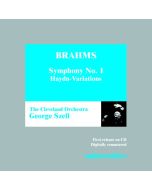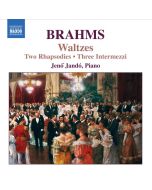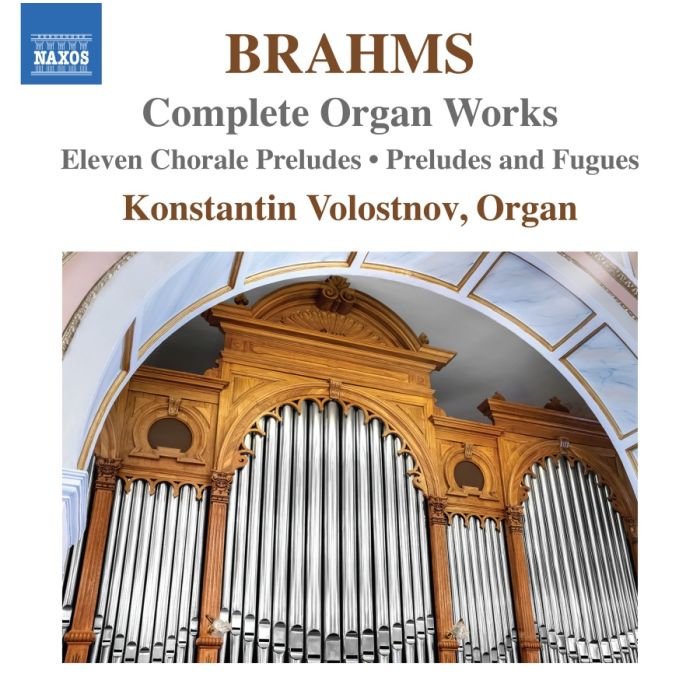
(Produkt nie został jeszcze oceniony)
kompozytor
Brahms, Johannes
tytuł
Brahms: Complete Organ Works
wykonawcy
Volostnov, Konstantin
nr katalogowy
8.579147
opis
In contrast to the grand scale and public profile of his orchestral and choral works, Johannes Brahms saw the organ as an instrument ‘for home use’, and one in which he confided his most intimate feelings. The earlier pieces were exercises in counterpoint inspired by Brahms’ friendship with Clara Schumann and, despite their academic titles, they are infused with distinctive musical ideas and lyrical expressiveness. The later Chorale Preludes with their themes of suffering and death can be seen as autobiographical, the elder Brahms seeking spiritual strength in the ‘pure style’ of the Protestant tradition.
•Brahms: Chorale Preludes (11), Op. 122
•Brahms: Chorale Prelude Op. 122 No. 1 'Mein Jesu, der du mich'
•Brahms: Chorale Prelude Op. 122 No. 2 'Herzliebster Jesu'
•Brahms: Chorale Prelude Op. 122 No. 3 'O Welt, ich muss dich lassen'
•Brahms: Chorale Prelude Op. 122 No. 4 'Herzlich tut mich erfreuen'
•Brahms: Chorale Prelude Op. 122 No. 5 'Schmücke dich, o Liebe Seele'
•Brahms: Chorale Prelude Op. 122 No. 6 'O, wie selig seid Ihr doch, Ihr Frommen'
•Brahms: Chorale Prelude Op. 122 No. 7 'O Gott, du frommer Gott'
•Brahms: Chorale Prelude Op. 122 No. 8 'Es ist ein Ros entsprungen'
•Brahms: Chorale Prelude Op. 122 No. 9 'Herzlich tut mich verlangen'
•Brahms: Chorale Prelude Op. 122 No. 10 'Herzlich tut mich verlangen'
•Brahms: Chorale Prelude Op. 122 No. 11 'O Welt, ich muß dich lassen'
•Brahms: Fugue in A flat minor, WoO 8
•Brahms: Prelude and Fugue in A minor, WoO 9
•Brahms: Prelude and Fugue in G minor, WoO 10
Works:
•Brahms: Chorale Prelude and Fugue on 'O Traurigkeit, o Herzleid', WoO 7
•Brahms: Chorale Preludes (11), Op. 122
•Brahms: Chorale Prelude Op. 122 No. 1 'Mein Jesu, der du mich'
•Brahms: Chorale Prelude Op. 122 No. 2 'Herzliebster Jesu'
•Brahms: Chorale Prelude Op. 122 No. 3 'O Welt, ich muss dich lassen'
•Brahms: Chorale Prelude Op. 122 No. 4 'Herzlich tut mich erfreuen'
•Brahms: Chorale Prelude Op. 122 No. 5 'Schmücke dich, o Liebe Seele'
•Brahms: Chorale Prelude Op. 122 No. 6 'O, wie selig seid Ihr doch, Ihr Frommen'
•Brahms: Chorale Prelude Op. 122 No. 7 'O Gott, du frommer Gott'
•Brahms: Chorale Prelude Op. 122 No. 8 'Es ist ein Ros entsprungen'
•Brahms: Chorale Prelude Op. 122 No. 9 'Herzlich tut mich verlangen'
•Brahms: Chorale Prelude Op. 122 No. 10 'Herzlich tut mich verlangen'
•Brahms: Chorale Prelude Op. 122 No. 11 'O Welt, ich muß dich lassen'
•Brahms: Fugue in A flat minor, WoO 8
•Brahms: Prelude and Fugue in A minor, WoO 9
•Brahms: Prelude and Fugue in G minor, WoO 10
nośnik
CD x 1
wydawca
Naxos
data wydania
2.11.2023
EAN / kod kreskowy
747313914777
58,00 zł
Produkt na zamówienie
Wysyłka ustalana indywidualnie.
Darmowa wysyłka dla zamówień powyżej 300 zł!
Darmowy kurier dla zamówień powyżej 500 zł!
sprawdź koszty wysyłki